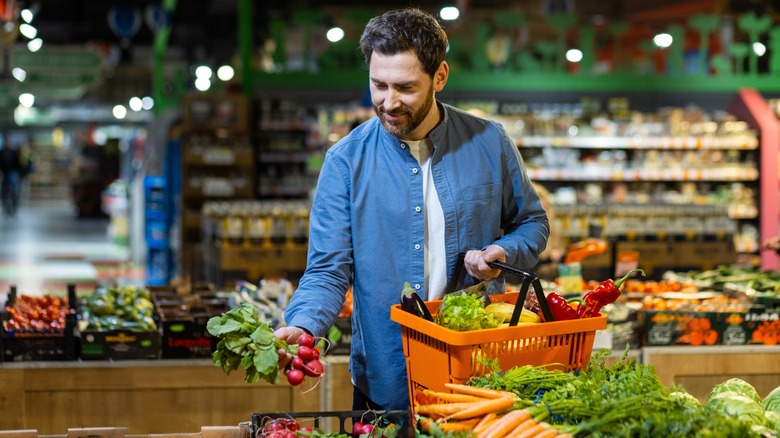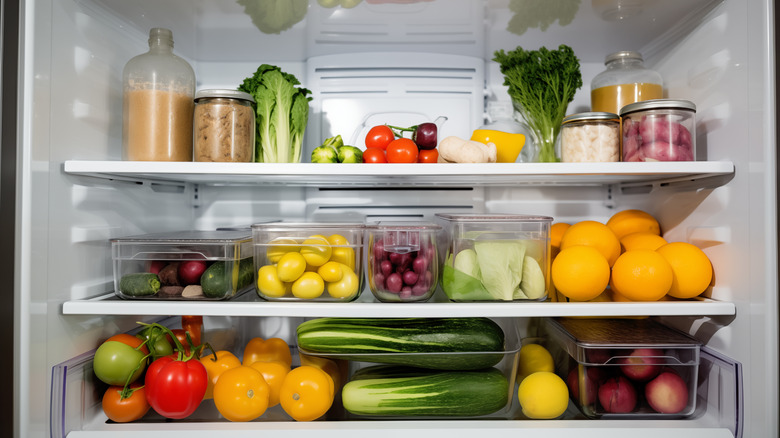Why You Should Avoid Buying Produce At This Type Of Grocery Store
Warehouse-style grocery stores like Sam's Club and Costco are great for shoppers looking to buy in bulk, as it saves both time and money. Customers can go longer between shopping trips and add a couple extra dollars back to their pockets in the process. Not everything is meant to be bought in bulk, however, and one big thing you should avoid at bulk warehouse-club style stores is fresh produce.
Buying produce in bulk might seem like a good idea in theory, but unless you're feeding a large group or are really into food preservation, you likely won't be able to use it all up before it starts to spoil. Many sorts of fresh fruits and veggies unfortunately don't last that long once we take them home from the store, especially organic varieties that are sometimes reported to spoil a bit faster. They can even go bad at the store, which is why it's so important to look out for red flags of spoiled produce at the grocery store.
How long exactly your produce lasts depends on what it is and how you store it, but if you're buying in bulk quantities, it often becomes a bit of a moot point. Most shoppers are better off buying nonperishables at bulk-buy stores and getting fresh produce at a typical supermarket or farmer's market. That way, you can have the best of both worlds when shopping for the best deals.
How to keep your produce fresh for longer
If you are determined to buy produce from a warehouse store, it's not doomed to rot straightaway. You can stretch it out if you know how. For example, find the best time of day to buy produce from the grocery store. Big box stores likely get shipments in at the beginning of the day and just before they close, so you'll probably have the freshest selection available in the morning or evening. Avoid the middle of the day, especially on busy days like the weekend.
You can also help keep produce fresh longer by storing it correctly. You might not think there's a right way to store produce in a crisper drawer, but think again. Keep the drawer's vent open when storing fruits that produce a lot of ethylene gas, like apples and pears. This allows the fruit-ripening gas to escape and slows spoilage. For produce that's prone to wilting and needs a lot of humidity, like leafy greens, keep the drawer closed. And some produce, like potatoes, actually shouldn't be in the fridge at all.
If you notice your produce looking less than fresh, the best thing you can do is process it into another form. Make banana bread with that spotty banana, or turn an almost overripe tomato into homemade pasta sauce or salsa. Turn fruits into jams, preserves, juice, or smoothies, and make broth with your wilting veggies. It won't make your produce last forever, but it will extend the shelf life and hopefully keep it from going to waste.

